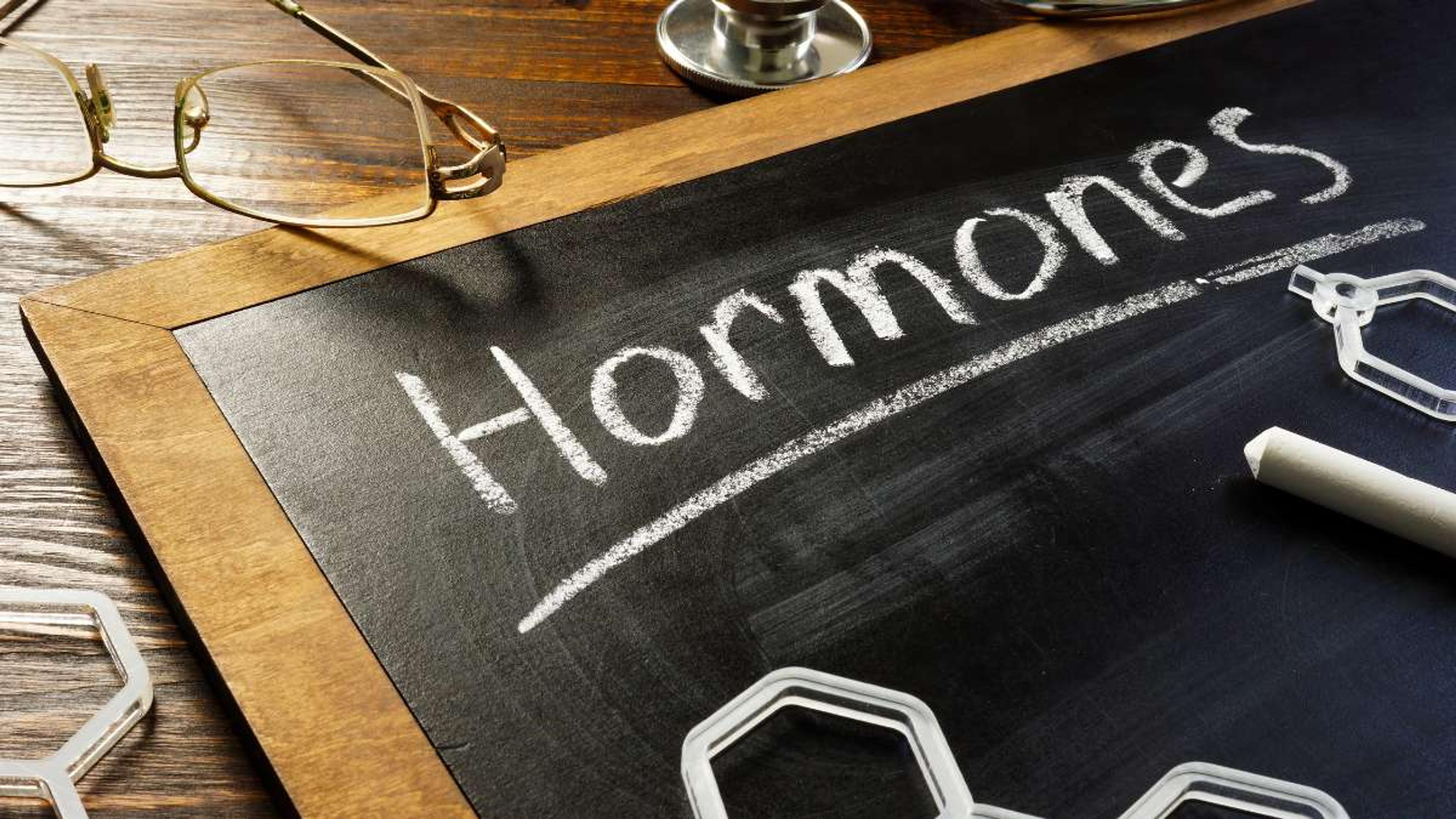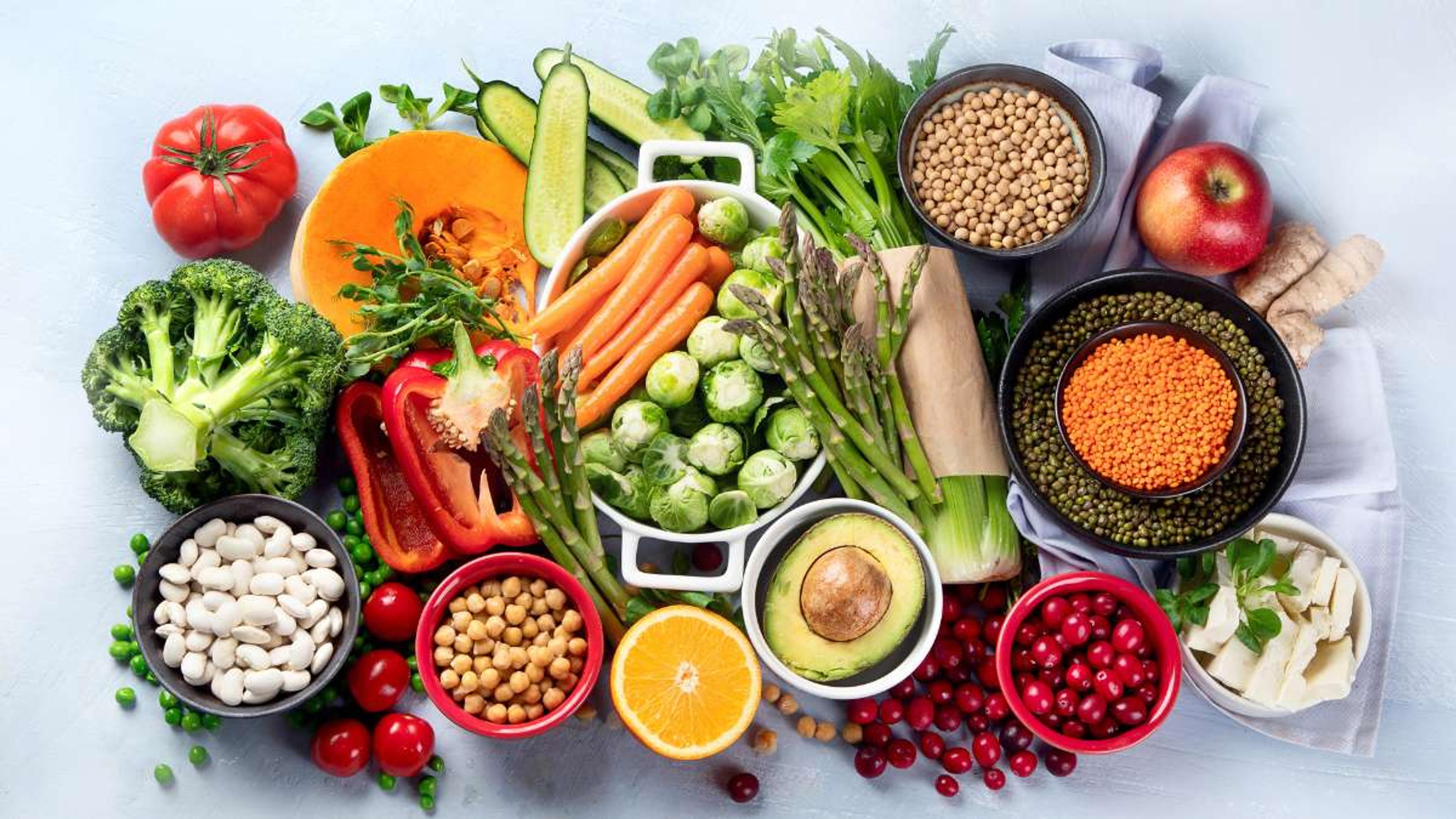Vegan Diet For Hormone Imbalance: A Comprehensive Guide

- Key Takeaways
- Brief overview of hormone imbalance: symptoms and causes
- The role of diet in hormone regulation
- The Science Behind Veganism and Hormone Balance
- Key Vegan Foods for Hormone Regulation
- Benefits of a Vegan Diet for Hormone Imbalance
- Potential Pitfalls of a Vegan Diet for Hormonal Health
- Transitioning to a Vegan Diet: Steps and Tips
- Conclusion
- FAQs
Are you struggling with hormone imbalance and searching for a natural solution? Look no further! In this article, we will explore the powerful impact of a vegan diet on hormonal health. Did you know that certain plant-based foods can actually help regulate your hormones?
Get ready to discover the science behind veganism and its ability to rebalance your body. So, grab a seat and let's dive into the world of hormone balance through the power of plants.
Key Takeaways
- A vegan diet can help regulate hormone imbalance by incorporating plant-based foods that support hormone production and regulation.
- Discover a number of vegan foods that are beneficial for hormone balance due to their nutrient content and anti-inflammatory properties.
- Balanced nutrient intake is crucial for a vegan diet, as there can be risks of deficiencies in nutrients such as B12, iron, and omega-3 fatty acids that can impact hormone health.
- Soy products do not disrupt hormonal balance and can offer potential health benefits when consumed as part of a balanced vegan diet.
Brief overview of hormone imbalance: symptoms and causes
Hormone imbalance happens when your body has too much or too little of a hormone. Hormones are vital chemicals made by glands in your endocrine system. They control many tasks in the body like growth and digestion.
In our body, there are numerous types of hormones that play crucial roles in maintaining overall health and balance. Here are a few examples:
1. Estrogen: This hormone is primarily associated with female reproductive health and plays a key role in regulating menstruation, pregnancy, and bone density.
2. Testosterone: Known as the male sex hormone, testosterone is also present in females but in smaller amounts. It's responsible for muscle growth, libido, and the development of secondary sexual characteristics.
3. Progesterone: This hormone supports pregnancy by preparing the uterus for implantation and maintaining the uter rinelining during pregnancy.
4. Thyroid: The thyroid hormone, produced by the thyroid gland, regulates metabolism and energy levels in the body.
5. Insulin: Insulin is a hormone produced by the pancreas and is responsible for regulating blood sugar levels in the body and transporting glucose from the bloodstream into cells to be used for energy.
When hormones are out of balance, it can lead to a wide range of symptoms such as irregular periods, mood swings, less interest in sex, changes to weight, acne and fatigue. There are several factors that can contribute to hormone imbalance, including stress, poor nutrition, certain medications, and underlying medical conditions.
Fortunately, incorporating a vegan diet can be a powerful tool in regulating hormone imbalance. By focusing on plant-based foods that support hormone production and regulation, individuals can take control of their health and promote balance within their bodies.
The role of diet in hormone regulation
Eating the right food can control our hormones. Food like green vegetables, nuts, and fruits have essential nutrients in them. These nutrients help keep our body's hormone levels healthy. For example, a meal with only plants can help men who have type 2 diabetes feel full longer.
This happens because of a rise in gut hormones after eating plant-based foods.
The Science Behind Veganism and Hormone Balance
Plant-based foods have been shown to have a positive impact on hormone production and regulation, making them an excellent choice for those with hormone imbalances. Read more to learn about the scientific evidence supporting the use of a vegan diet for hormonal health.

How plant-based foods influence hormone production
Plant-based foods are good for our bodies. They help make hormones right. Foods like quinoa, flax meal, and leafy greens keep our hormones in check. Tofu, a plant food, helps your belly make special chemicals after you eat.
This can help control hunger and fullness feelings. Eating vegan foods is great for gut health too. It also aids in making insulin, thyroid hormone, cortisol, and estrogen which can help with weight control.
Studies and research supporting the vegan diet for hormonal health
A study in the journal Nutrients found a vegan diet is best for gut hormones. It helps you feel full quicker. This is good news for people with weight problems. Eating too much can lead to hormone imbalance.
There are studies that show no link between vegan diets and bad hormones. People thought plants could cause hormonal imbalance, but it's not true! Plants like flax meal, avocado, and turmeric help balance our hormones naturally.
They make us healthy from inside out! So, it's clear that eating vegan food is good for our body's hormones.
Key Vegan Foods for Hormone Regulation
Cruciferous vegetables like broccoli, cauliflower, and Brussels sprouts are packed with nutrients that support hormone balance. Curious to know how they work? Read more to discover the benefits of these powerful plant foods for hormonal health.

Cruciferous Vegetables: Benefits of broccoli, cauliflower, and Brussels sprouts
Cruciferous vegetables like broccoli, cauliflower, and Brussels sprouts offer numerous benefits for hormone balance. These veggies are packed with important vitamins, minerals, and antioxidants that support overall health.
They also contain unique compounds called phytochemicals that have been shown to reduce inflammation and fight against cancer cells. Additionally, these cruciferous vegetables are low in calories but rich in fiber, making them a great option for weight management.
Including these nutrient-dense plants in your vegan diet can help promote hormonal health and improve your overall well-being. So make sure to add some of these delicious cruciferous vegetables to your meals!
Flaxseeds: Lignans and their role in estrogen balance
Flaxseeds are tiny, powerful seeds that can help balance estrogen levels in the body. They contain a compound called lignans, which act like weak estrogen in postmenopausal women. These lignans have been shown to reduce the risk of breast cancer in women and alleviate symptoms of hormone imbalance.
By acting as phytoestrogens, flaxseeds can bind to excess estrogen and promote hormone balance. Including flaxseeds in your diet is a simple and natural way to support hormonal health.
Soy Products: Misconceptions and the truth about soy and hormones
Soy products have been surrounded by misconceptions when it comes to their impact on hormones. One common belief is that soy increases estrogen levels in men, but there is no scientific evidence to support this claim.
In fact, soy contains plant estrogens called isoflavones that function similarly to human estrogen. However, routine intake of soy does not disrupt the balance of female reproductive hormones either.
There are also myths about all soy products being genetically modified and increasing the risk of breast cancer or feminization in men. These misconceptions overlook the fact that soybeans and soy foods contain bioactive components like saponins, protease inhibitors, phytic acid, and isoflavones that offer potential health benefits.
Nuts and Seeds: Importance of omega-3 and omega-6 balance
Nuts and seeds, like hemp seeds, pumpkin seeds, sunflower seeds, walnuts, and soya spread, are important for maintaining the balance of omega-3 and omega-6 fats in our bodies. These fats play a crucial role in hormone regulation.
Walnuts, for example, are rich in omega-3 fatty acids and have anti-inflammatory properties. Flaxseeds and pumpkin seeds are also great sources of omega-3 fatty acids. Brazil nuts provide selenium which is essential for hormone balance and thyroid health.
Benefits of a Vegan Diet for Hormone Imbalance
A vegan diet can provide several benefits for individuals with hormone imbalance, including reduced exposure to animal hormones and antibiotics, stabilized insulin and blood sugar levels, improved thyroid function and metabolism, enhanced mood and reduced PMS symptoms, as well as better sleep patterns and energy levels.

Reduction in exposure to animal hormones and antibiotics
A vegan diet can help reduce your exposure to animal hormones and antibiotics. Animal products like meat and dairy often contain hormones that can affect our own hormone levels when we consume them.
By choosing plant-based foods instead, we avoid these additional hormones and antibiotics in our diet. This can have positive effects on our hormonal balance and overall health.
Stabilization of insulin and blood sugar levels
A vegan diet can help stabilize insulin and blood sugar levels, which is important for managing hormonal imbalance. By consuming plant-based foods rich in fiber, such as fruits, vegetables, and whole grains, blood sugar levels can be better regulated.
This is because fiber slows down the digestion of carbohydrates and prevents spikes in blood sugar. Additionally, a vegan diet reduces the intake of processed sugars and refined carbohydrates that can lead to insulin resistance.
Overall, a vegan diet promotes stable blood sugar levels and supports hormone balance in the body.
Improved thyroid function and metabolism
A vegan diet has been found to have positive effects on thyroid function and metabolism. While eliminating animal products from the diet may lead to a lower intake of dietary iodine, studies have shown that this does not typically result in hypothyroidism.
In fact, a vegan diet may actually protect against autoimmune diseases that affect the thyroid gland. Plant-based foods like quinoa, flax meal, turmeric, avocado, and leafy greens can provide important nutrients and antioxidants that support healthy thyroid function and metabolism.
Furthermore, a vegan diet promotes the production of beneficial gut hormones which play a role in satiety and overall gut health. So by choosing plant-based foods, you can help improve your thyroid function and keep your metabolism running smoothly.
Enhanced mood and reduced PMS symptoms
A vegan diet can have a positive impact on mood and help reduce symptoms of premenstrual syndrome (PMS). Research has shown that vegetarians tend to report more positive moods compared to meat eaters.
Additionally, following a low-fat, vegan diet can significantly decrease the duration and intensity of premenstrual pain. This means that by choosing plant-based foods, such as fruits, vegetables, whole grains, and legumes, women may experience improved emotional well-being during their menstrual cycle.
So if you're looking for a natural way to enhance your mood and reduce PMS symptoms, adopting a vegan diet could be worth considering.
Better sleep patterns and energy levels
Following a vegan diet can lead to improved sleep patterns and higher energy levels. Poor sleep has been linked to imbalances in hormones such as insulin, cortisol, leptin, ghrelin, and HGH.
When these hormones are not balanced, it can disrupt our sleep-wake cycle and leave us feeling tired throughout the day. By including more plant-based foods in our diet, we can support hormonal balance and promote better quality sleep.
Additionally, a vegan diet rich in nutrient-dense fruits, vegetables, whole grains, nuts, and seeds provides essential vitamins and minerals that help boost energy levels naturally.
Potential Pitfalls of a Vegan Diet for Hormonal Health
Balanced nutrient intake is crucial for a vegan diet, as there can be risks of deficiencies in nutrients such as B12, iron, and omega-3 fatty acids that can impact hormone health.

Importance of balanced nutrient intake
A balanced nutrient intake is crucial for overall health, including hormone balance. When following a vegan diet, it's important to ensure that you are getting all the necessary nutrients your body needs.
This means paying attention to your protein, iron, calcium, zinc, and vitamin B12 levels. If these nutrients are lacking in your diet, it can impact your hormone balance and overall well-being.
To avoid deficiencies and support hormonal health on a vegan diet, consider consulting with healthcare professionals who can guide you in achieving a balanced nutrient intake through food choices and potential supplementation as needed.
Risks of nutrient deficiencies and their impact on hormones (e.g., B12, iron, omega-3)
Vegan diets have the potential for nutrient deficiencies, which can impact hormone balance. Key nutrients like vitamin B12, iron, and omega-3 may be lacking in a vegan diet. Vitamin B12 deficiency is especially concerning as it can cause irreversible harm to the body.
Iron deficiency affects energy levels and can lead to fatigue and decreased thyroid function. Omega-3 fatty acids are important for brain health and hormonal regulation. Ensuring adequate intake of these nutrients through supplementation or carefully planned meals is crucial for maintaining hormone balance on a vegan diet.
Addressing common myths and misconceptions
There are several common myths and misconceptions surrounding a vegan diet for hormone imbalance. One of these myths is that the vegan diet lacks sufficient protein. However, it is possible to obtain an adequate amount of protein from plant-based sources such as legumes, tofu, and tempeh.
Another misconception is that a vegan diet cannot provide all the necessary nutrients for hormonal health. While it is important for vegans to ensure they are getting enough iodine, vitamin D, and omega-3 fatty acids, there are plant-based sources available to meet these needs.
It's also important to note that being a vegan does not automatically mean weight loss or health improvement; it ultimately depends on an individual's food choices and overall calorie intake.
Transitioning to a Vegan Diet: Steps and Tips
When transitioning to a vegan diet, it's important to take gradual steps and focus on incorporating a variety of whole foods. By managing cravings and ensuring proper nutrient intake, you can successfully navigate this lifestyle change.
Read more for valuable tips on making the transition smoother and healthier for your hormonal well-being.

Gradual transition vs. overnight change
Transitioning to a vegan diet can be done in two ways: overnight change or gradual transition. Going cold turkey and eliminating all animal products from your diet overnight is a more drastic approach.
However, it may be too big of a lifestyle change for some people, leading to difficulties in sticking with the new diet. On the other hand, a gradual transition involves slowly cutting down on the consumption of animal products over time.
This allows your body and taste buds to adjust gradually. It's often recommended as a more sustainable approach that increases the chances of long-term success when adopting a vegan lifestyle.
Importance of variety and whole foods
A key aspect of a vegan diet for hormone imbalance is the importance of variety and whole foods. Including a wide range of plant-based foods in your diet ensures that you're getting all the essential nutrients your body needs to function properly.
Whole foods, such as fruits, vegetables, whole grains, legumes, nuts, and seeds, are rich in vitamins, minerals, fiber, and antioxidants that can support hormone balance.
By incorporating different fruits and vegetables into your daily meals, you can benefit from a diverse array of vitamins and minerals that play crucial roles in hormonal health. Whole grains provide complex carbohydrates that help regulate blood sugar levels and support overall hormonal balance.
Legumes like beans and lentils are excellent sources of plant-based protein and contain fiber that aids in digestion.
Nuts and seeds offer healthy fats like omega-3 fatty acids which are beneficial for hormone production. They also provide important minerals like zinc which supports fertility and reproductive health.
Tips for managing cravings and ensuring nutrient intake
Cravings can be challenging when transitioning to a vegan diet, but there are strategies to help manage them. First, it's important to understand the root cause of your cravings. Are you craving certain textures or flavors? Once you identify this, look for plant-based alternatives that satisfy those cravings.
For example, if you're craving something creamy and savory like cheese, try incorporating nut-based cheeses or tofu into your meals - you'd be surprised to learn that they can be easily homemade.
Ensuring nutrient intake on a vegan diet is crucial for overall health. To meet your nutritional needs, focus on consuming a variety of plant-based foods. Incorporate foods rich in essential nutrients such as fruits, vegetables, whole grains, legumes, nuts, and seeds.
Consider consulting with healthcare professionals or registered dietitians who specialize in vegan nutrition to ensure you're getting a well-rounded diet.
When it comes to specific nutrients that may be harder to obtain on a vegan diet, consider including fortified foods or supplements in your routine. Nutrients like vitamin B12 and omega-3 fatty acids may require supplementation for optimal health.
Consult with healthcare professionals
Consulting with healthcare professionals is crucial when considering a vegan diet for hormone imbalance. They can provide valuable guidance and support throughout the process, helping you transition to a vegan lifestyle in a healthy and balanced way.
Healthcare professionals have the expertise to ensure that your new diet includes all the essential nutrients your body needs, such as protein, calcium, and key vitamins. Furthermore, they can help identify and address any potential health risks associated with a vegan diet, including vitamin B12 deficiency and hormonal imbalances.
By consulting with healthcare professionals, you can properly plan your dietary changes and maintain hormonal balance effectively on a vegan diet.
Conclusion
In conclusion, a vegan diet can be beneficial for hormone imbalance by incorporating plant-based foods that support hormone regulation. However, it is important to maintain a balanced and nutritious diet to avoid nutrient deficiencies and potential pitfalls.
Consulting with healthcare professionals can help ensure proper nutrient intake and overall hormonal balance. Transitioning gradually and focusing on whole foods will contribute to optimal health on a vegan diet.
FAQs
1. Can a vegan diet help with hormone imbalance?
Yes, a well-planned vegan diet that includes a variety of plant-based foods can support hormone balance by providing essential nutrients and antioxidants.
2. What foods should I include in a vegan diet to balance hormones?
Include foods like whole grains, fruits, vegetables, legumes, nuts, seeds, and plant-based oils rich in omega-3 fatty acids to support hormone balance on a vegan diet.
3. Are there any specific nutrients that are important for hormone balance on a vegan diet?
Important nutrients for hormone balance on a vegan diet include iron, calcium, vitamin D, omega-3 fatty acids (ALA), iodine, zinc, and B vitamins such as B12.
4. Should I consult with a healthcare professional before starting a vegan diet for hormone imbalance?
It is recommended to consult with your healthcare professional or registered dietitian before making significant dietary changes to ensure it aligns with your individual health needs and goals regarding hormones.

